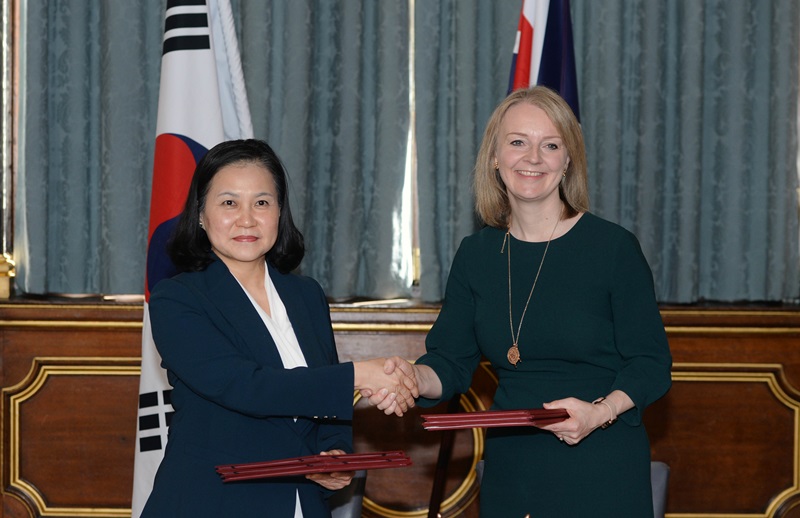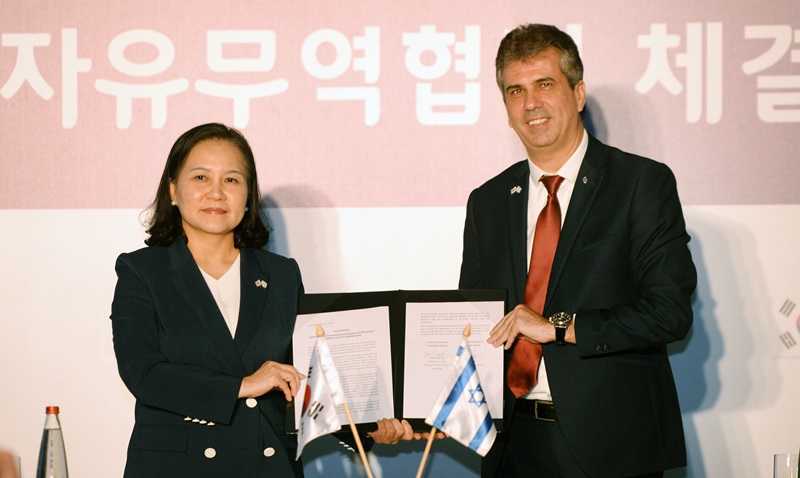-
 Korea.net's 24-hour YouTube channel
Korea.net's 24-hour YouTube channel- NEWS FOCUS
- ABOUT KOREA
- EVENTS
- RESOURCES
- GOVERNMENT
- ABOUT US

Trade Minister Yoo Myung-hee on Aug. 22 shakes hands with U.K. Secretary of State for International Trade Elizabeth Truss at a signing ceremony for the bilateral free trade agreement at the Ministry of Foreign Affairs in London.
By Song Baleun and Kim Minji
Photos = Ministry of Trade, Industry and Energy
Korea has signed free trade agreements (FTAs) with the U.K. and Israel.
Through its FTA with London, Seoul can ensure stable trade and economic relations even after the U.K. leaves the European Union (EU) under a "no-deal" Brexit. And through its FTA with Israel, Korea seeks diversification of its supply chains in response to Japan's recent export curbs.
Trade Minister Yoo Myung-hee on Aug. 22 signed the FTA with the U.K. with British Secretary of State for International Trade Elizabeth Truss in London.
Korea will have the same tariff exemptions in the U.K. on major exports such as cars and automotive parts as it does under Seoul's FTA with the EU. Korea and the U.K. also agreed on agricultural safeguard measures for sensitive farm products such as beef, pork and apples at levels lower than those under the Korea-EU agreement.
For rules on country of origin, goods manufactured with EU materials will be considered British goods for three years considering the time companies need to adapt to changes in production and supply after Brexit.

Trade Minister Yoo Myung-hee on Aug. 21 poses for a picture with Israeli Economy and Industry Minister Eli Cohen after both sides signed a bilateral free trade agreement at the Orient Hotel in Jerusalem, Israel.
A day before the Korea-U.K. FTA was signed, Seoul became the first Asian nation to conclude an FTA with Israel. When its accord with Israel takes effect, Korea will abolish tariffs on 99.9 percent of the value of Israeli imports and Israel will do the same in phases for all Korean imports.
Tariffs on major Korean exports like cars, automotive components, textiles and cosmetics will be immediately lifted and those on major Israeli imports including equipment for semiconductor manufacturing and electronic devices will be abolished within three years.
Given that its FTA with the EU has been concluded, Korea can have its FTA with the U.K. go directly through the ratification process and take effect, whereas that with Israel will take longer since more steps are required including legal reviews.
brightsong@korea.kr













